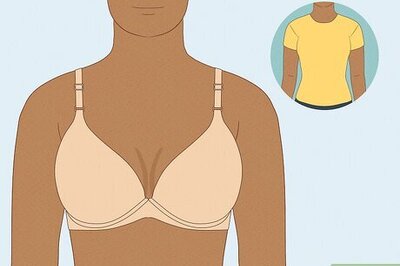
views
Led by MassGeneral Hospital for Children (MGHfC), researchers observed 829 participants with an average age of 13 who had taken part in Project Viva, a long-term study based at Harvard Pilgrim Health Care Institute. The participants were asked to complete written sleep logs and also had both their nighttime sleep and daily physical activity measured over 7 to 10 days by actigraphy, which records physical motion by a device worn on the wrist.
The actigraphy measured both sleep duration -- the amount of time spent asleep during the night -- and sleep efficiency -- the percentage of time which is actually spent asleep each night -- to assess the quality and quantity of sleep. The results showed that the average sleep duration for all participants was 7.35 hours per day, with 31 percent of participants getting less than 7 hours sleep.
Only 2.2 percent of participants met or exceeded the recommended average sleep duration for their age group, which is 9 hours per day for ages 11 to 13 and 8 hours per day for those 14 to 17, and more than 58 percent also had sleep efficiency less than the 85 percent that is considered sufficient for adults.
The researchers also found that both shorter sleep duration and lower sleep efficiency were associated with increased levels of overall and abdominal fat deposition, a finding which still held true even after the team had taken into account other influencing factors such as physical activity, television viewing and consumption of fast foods or sweetened beverages.
The team also found that a longer sleep duration and higher efficiency were associated with a reduced cardiometabolic risk, based on factors such as smaller waist circumference, lower systolic blood pressure, and higher HDL cholesterol levels.
"Sleep quantity and quality are pillars of health alongside diet and physical activity," commented lead and corresponding author Elizabeth Cespedes Feliciano. "We know that exercise improves sleep efficiency in adults and that screen time decreases it in children, so preventive measures should target those and other factors such as stress, noise and caffeine consumption."



















Comments
0 comment